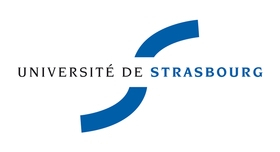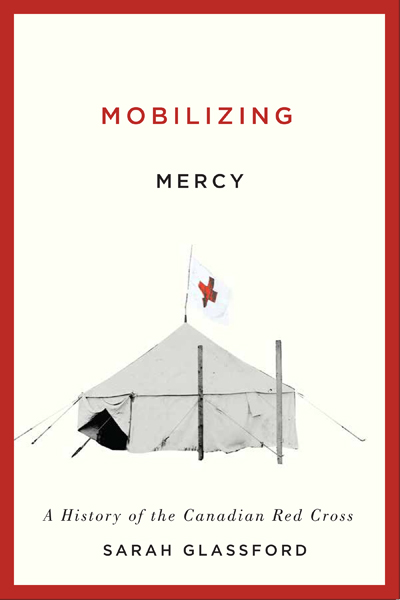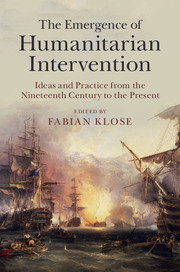
Canadian Network on Humanitarian History
Annual General Meeting
May 18, 2022
Held virtually using Zoom
12:30-2:00 p.m.
Chair: Dominique Marshall
Minutes: Nassisse Solomon
1. Introduction by Attendees:
| Hunter Mcgill (retired CIDA Official), taught courses at Carleton and Ottawa U on Humanitarian Aid and Development ; part of the archival rescue team | Stephen Osei-Owusu, University of Ghana, teaches history – focused on the role of aid and development in Ghana’s development post-colonialism – now working on Environmental History | Simplice Ayanma Post Doc Banting Fellow Working with David Webster- at Bishops University The politics of Canada and the Franco-phone |
| Claire Lefort-Rieu : Ph.D. Anthropology in Forced Migration in Cameroon – Institute of Development and Paris University in French | Rhonda Gossen : Also worked at CIDA – works as a consultant for UNEP and UNHCR consultant – retired from CIDA – interested in the archival rescue project and in the women development projects in Pakistan | John Foster: Teaching at the University of Regina – rewriting 3rd year course on International Human Rights. Involved in MITACS between Dominique et al. Kevin O’Sullivan’s book- the |
| Nassisse Solomon | Lydia Wytenbroek : Assistant professor at UBC,social historian of twentieth-century health care, with a particular interest in understanding and interpreting the historical forces that have shaped the nursing profession and practice. *Interests in Nursing in Iran. Will be responsible to Tweets and coordinating events for CNHH. | Sonja De Laat : Degree in Anthropology, specializing in the History of Humanitarian Representation. Involved with Dominique |Humanitarian Health Ethics – palliative care. |
| Kevin Brushett : Head of History at the Royal Military College, interested in CIDA work- government and non-government actors brokered the relationship btw the two | Jill Campbell Miller: Currently at Fisheries Canada. Interested in working on projects examining relationships b/w India and Canada. | Dominique Marshall: Oxfam Canada|Gender design in Science Technology and Mathematics |
| Sarah Glassford Practicing archivist at the University of Windsor. History of The Canadian Red Cross; interested in collaborating |
2. Updates on CNHH Projects:
- CNHH Blog (Sarah):
The blog will continue to function as it has – a bit of a catchall. A great place to showcase ideas that are not big enough for an article- but you are looking to get it out there. Hoping to grow the list of Humanitarian Reads: “If you only read 4 things on topic x – these are the 4 that you should read”. Annotated bibliography.
E.g. Sonya – how to interpret visual histories
Rhonda Gossen offered the following in the chat: “I have a huge list of books written by humanitarians that has been compiled by the largest Facebook group of humanitarian workers called Fifty Shades of Aid”.
- Bulletin: Dominique asked for feedback on how this has been working.
- Report from ongoing NGO Collaborations (Anna, Helen, Elizabeth, & FRI):
MITACS project –- John- Latin American Working Group
- Helen- Lebanese Reparations of the 1970s – helping authors with organizing the documents in the archives.
- Report from ongoing NGO Collaborations (Anna, Helen, Elizabeth, & FRI):
Farm Radio is hiring an RA to do 200 hours of work interviewing people in Africa to see how they benefited from Farm Radio funding
- Archives (David, Dominique, Sarah)
Library and Archives Canada – Hunter and Chris working on fishery data from local fisheries. Dominique and David are collaborating in this regard. David is thinking of going to Carleton to do more of this work.- Teaching: Recipro, upcoming courses, and other projects:
History of the Spanish Civil War; Communist Aid; Environmental NGOs
- Teaching: Recipro, upcoming courses, and other projects:
- Publications (Journal of Humanitarian Affairs) :
Special issue of the Journal of Humanitarian Aid History
3. CHA Panels:
- 2022 update: (Stephen, Simplice, Robyn?)
Report on the panel from Wednesday May 18:
Jill – the panel for this year was organically formed as both Dominique and David had post docs attending. A CHA affiliated group can host a panel.| Enticing for emerging scholars/ current students in Ph.D. or MA programs| Pull the proposal together.
Simplice: A major 1968-1980s Cameroon to Canada diplomatic project – CIDA.
Stephen: spoke of an event in 1849 in Ghana. A christianized and indegnous African population. Beyond the normative implications of the clash- a christianized group invading a group that works with the indigenous population….Eurpoean Christianity and modality- often times the indigenous populations gets trumped out. Relevance during the pre-colonial| colonial | and post colonial periods.
Spring Shannon Lecture series –
https://carleton.ca/history/news/shannon-lectures-spring-2022/
DFO has a social sciences and humanities network teams channel so I will post it there.
Lydia – will be promoting these events on CNHH Twitter account.
Action Items: Dominique and Stephen will connect with Lydia for further action.
- 2023- Planning: (Nassisse, Jill?)
Solicitation of ideas for a CHA Panel
a) Idea Number 1: Sarah- 2023 Panel on Archives- David Webster and Hunter McGill – a running theme is the presence or absence of archives and the crazy states in which they reach us. Jill suggested that the Round table Format might work best for this proposed discussion.
Jill – getting conference permission from the DFO is a long process. So start early if we are interested in getting CIDA or GAC involved in the panel.
b) Idea Number 2: Aid perspectives from the Middle East –
Lydia Wytenbroek: Area studies
c) Idea Number 3: Palliative Care| Aging – post-pandemic
*Cross-posting events – joint Congress Panel-
4. Book Launch (Lydia)
Great attendance- recording of events will be up soon.
If anyone has any ideas – please email Lydia @ lydia.wytenbroek@ubc.ca
5. Future Projects:
- Events (Lydia) : email Lydia
- NGO partners (& Annual Meeting of 2023): York University- Glendon College
- Archives:
i. Kevin looking to work through CIDA files at LAC. Is there a way of getting more privileged access to these files? Contact Jennifer Anderson and Brandon Kelly at GAC.
ii. Archival Rescue Project: add CIDA to the meeting agenda of this group for ~30 minutes.
iii. Oral History with donors of the archives to understand the context of the donations.
iv. Rhonda Gossen- contact GAC / Historians to see if a funding proposal can be put forward to get access to files and start cataloguing materials.
6. Housekeeping:
- Website Updates
- Governance Updates & Potential Changes and Additions (Future Executive Committee Meetings – Nassisse)
- Membership update and Potential new members
7. New Business & Other Business:
Check to see if there is a copy of the following book at your local libraries/ institutional library: https://www.ubcpress.ca/breaking-barriers-shaping-worlds





